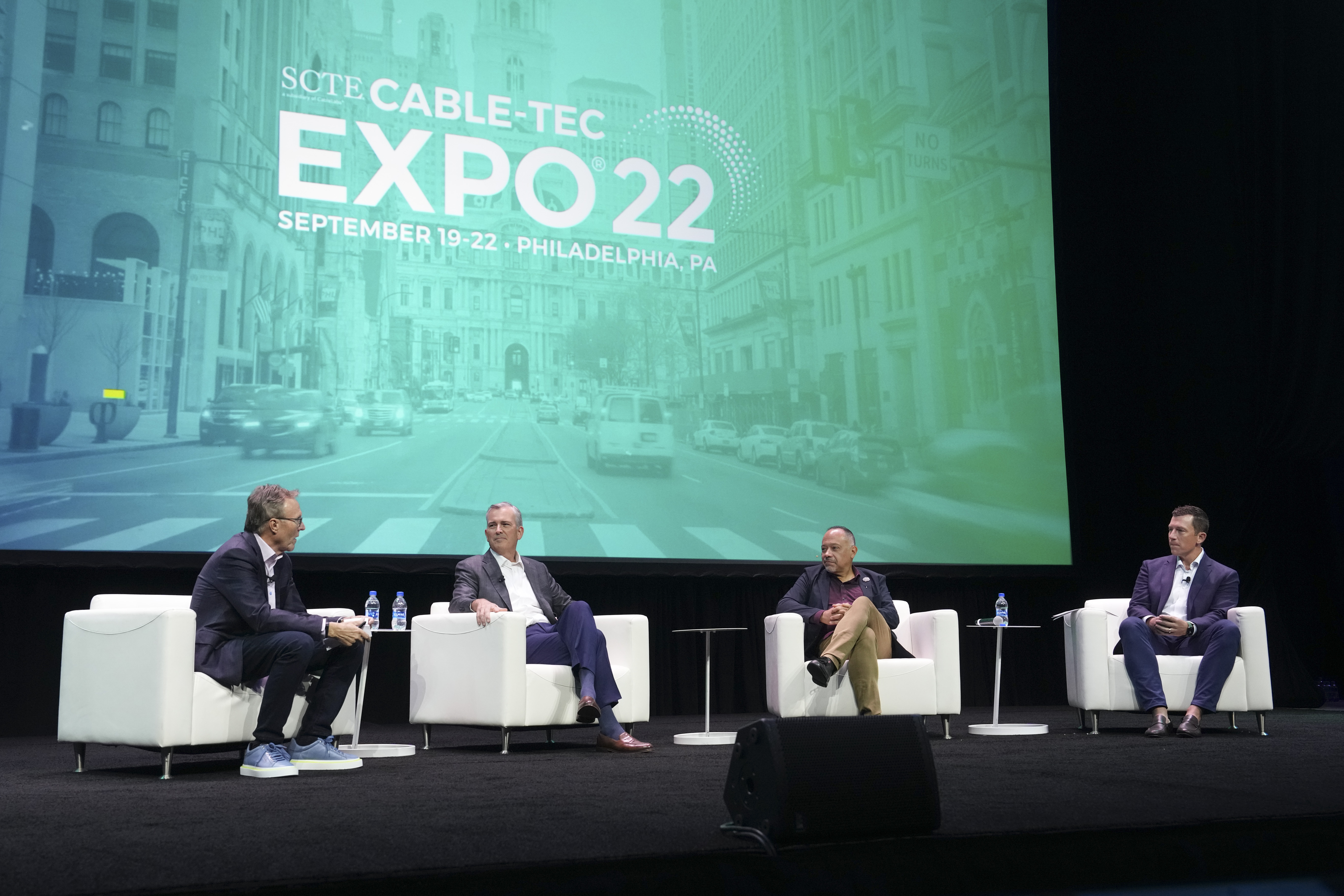SCTE Cable-Tec Expo: Home Networks Are the New Industry Battleground, Panel Says
Consumers are becoming less concerned with bandwidth and more with connectivity

The smarter way to stay on top of the multichannel video marketplace. Sign up below.
You are now subscribed
Your newsletter sign-up was successful
While the telecom industry has spent the past few decades touting the ever increasing bandwidth of their various broadband products, a panel of top cable experts said that consumers are increasingly looking to how those services perform as they continue to pile devices and applications onto their networks.
As cable has evolved from one-way video to two-way DOCSIS, users are becoming more concerned with how their different applications and services interact with their broadband network, Charter VP, connectivity technology Justin Colwell said on a panel session during Tuesday’s Opening General Session at the SCTE Cable-Tec Expo moderated by Comcast senior technology adviser Tony Werner.
Also Read: Talent Gap Depends on What You're Doing, Cable Chiefs Tell Expo
“We’re getting to the point, actually, where we’re going to have excess capacity, and customers’ applications are going to care less about the peak bandwidth, which will be important at times, but actually more about how latency and jitter and then the home network performs,” Colwell said. “A lot of what we’re focused on from a development perspective is how we create a better in-home or in-small business network, how we then use that end-to-end network to include where hosts are out on the internet in order to establish for applications that need it or customers that need it, the right experience.”
Home networks are getting more sophisticated as they increasingly have to handle more and more devices per home. Charter averages about 15 devices connected to its Wi-Fi network per customer, Colwell said.
“The network has never been more complicated,” Colwell said. “And our jobs are to turn that around and make it very easy for customers. Things should just work.”
Werner asked if that transformation has made the home Local Area Network (LAN) more important.
The smarter way to stay on top of the multichannel video marketplace. Sign up below.
“If you don’t have a good home LAN, it’s like putting bicycle tires on the back of a dragster,” Colwell said.
No conversation about the internet can bypass the Metaverse, the amalgamation of the various technologies and applications possible as data speeds and capacities rise exponentially. While Facebook even changed its name to Meta in deference to the expected impact of the technology, it hasn’t materialized quite as quickly as some might have expected. Werner asked if the panel thought the Metaverse was hype or reality, and Cox Communications chief technology officer Len Barlik came down hard on the latter.
“It is going to be a reality,” Barlik said. “I think the capabilities that we’re helping developers come forward with, and the expectations of customers, we’ll continue to see an evolution associated with it. We’re living in it today. … We’ll start to see a lot more.”
Also: Comcast Successfully Tests ‘Final’ Piece of ‘10G’ FDX DOCSIS 4.0 Network
Werner also asked about the future of video for the cable business. While traditional pay TV has lost millions of subscribers over the past decade and streaming video services have started to dominate, there have been some who have questioned if video service should even be part of the equation for cable operators.
Liberty Global EVP and CTO Enrique Rodriguez said that video will continue to remain an important part of Liberty Global’s product offerings, adding that it too will evolve like the rest of the business.
“We don’t see a future in which we stop innovating in video,” Rodriguez said, adding that although technology and needs have changed over the years — consumers are mostly concerned with the ability to onboard apps and integrating services — he still sees it having a place in the product mix.
“Video, at least in our markets, will continue to be extremely important for a long, long time,” he said. ■
Mike Farrell is senior content producer, finance for Multichannel News/B+C, covering finance, operations and M&A at cable operators and networks across the industry. He joined Multichannel News in September 1998 and has written about major deals and top players in the business ever since. He also writes the On The Money blog, offering deeper dives into a wide variety of topics including, retransmission consent, regional sports networks,and streaming video. In 2015 he won the Jesse H. Neal Award for Best Profile, an in-depth look at the Syfy Network’s Sharknado franchise and its impact on the industry.

